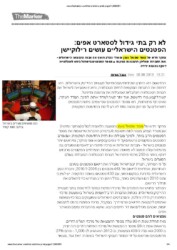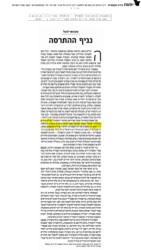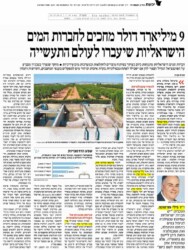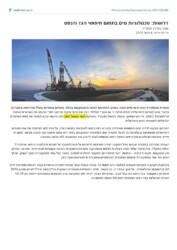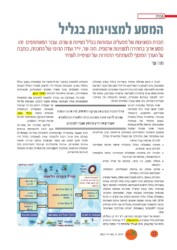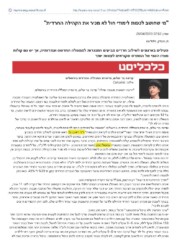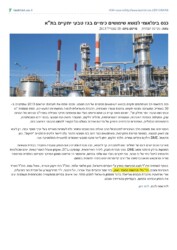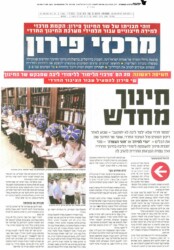Connect to schedule an interview
+972.4.829.2329
Neaman in the media
Who’s at the forefront of Israeli innovation?
Daphne Getz, Amir Hefetz, Eran Leck
Foreign firms, not local startups, are the biggest source of Israeli patents, a study by the Samuel Neaman Institute has found.
Dr. Daphne Getz, who authored the study together with Dr. Eran Leck and Amir Hefetz, explains that because they are small, startups were hard hit by the global economic crisis, and have also been hurt by decline in venture capital funding.
Israel is ranked sixth among OECD countries in PCT patent application submissions of inventors in relation to population size
Research of the Samuel Neaman Institute at the Technion and the National Council for R & D at the Ministry of Science, Technology and Space on the characteristics of the activity in the field of inventions in Israel, found that in 2010 Israel ranked sixth among OECD countries in submitting patent applications in the PCT route of inventors in relation to population.
The defiance virus
Reuven Gal, Ilia Zatcovetsky
Two documents authored by the research-planning project “Integration of the Ultra-Orthodox into Israel’s Economy”, led by Dr. Reuven Gal at the Samuel Neaman Institute at the Technion, shed light on the facts. Researcher Ilia Zatcovetsky found that the Haredi student population in Israel has grown in six years by more than a double – from 3,000 in 2006 to 7,350 in 2012 – and concluded that in the upcoming academic year it will reach 10,000.
Israel’s water expertise – an industrial moneymaker?
Gilead Fortuna, Shiri Freund-Koren
Billions to be made by helping companies meet green regulations.
Haifa vs Ashdod / / Netanyahu’s moment of truth: How many new ports Israel needs – and where
In the next few days, the Prime Minister will determine whether to establish two private ports, as required by the Ministry of Transport, or settle for one, at the request of the Finance Ministry – and decide where the first port will be established ■ The difficult dilemma shows that the decision does not lean on professional considerations only since it will carry national and strategic implications
Wanted: water technologies in oil and gas searching field
Israeli water technologies industry has become one of the world’s most desirable in recent years. Commercial attaches from variety embassies are interested in the products Israeli companies have to offer and it appears that the Ministry of Economy took the hint and established a unique project that will examine the following challenges of the companies in the field. The research project, which is sponsored by the Ministry in cooperation with Samuel Neaman Institute and the Export Institute, will ask to map the global challenges for Israel’s water industry.
The journey to excellence in the Galilee
The motive of the initiators and founders of the program, Dr. David Ben Tolila (Western Galilee College), Giora Shalgi, Dr. Avigdor Zonnenschein and Hava Sher (Rafael), was the need, raised by a number of industry bodies, to invest in improving the competitiveness of northern industry in general and the Galilee in particular.
Anyone who thinks to impose general studies does not know the Ultra-Orthodox community
Dr. Reuven Gal, head of an Ultra-Orthodox Integration Project at the Technion: The way the government operates and mainly the statements of the last few days, instead of promoting the matter- create just the opposite.
An International Conference on Chemical uses of natural gas will be held in Tel Aviv
An International conference on ‘chemical uses of natural gas’ will open the ISRACHEM 2013 exhibition that will be held on April 30. The conference and exhibition will be held under the auspices of the Ministry of Energy, the Israel Chemical Society and the Manufacturers Association. Under the heading “Natural gas is much more than a cheaper fuel,” will gather under one roof renowned personalities from leading research institutions in the U.S. and representatives of giant companies.
Re-education
According to a research report published by the Samuel Neaman Institute at the Technion a year ago and was also placed on Piron’s desk, there is no feasibility at this stage to make core studies an integral part of the Haredi curriculum. Nevertheless the study suggests a model that will enable a state funded extracurricular study framework that will allow parents who so desire, to send their children to study core subjects in kind of an informal study framework.

